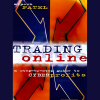-
×
 The Trading Blueprint with Brad Goh - The Trading Geek
1 × $5.00
The Trading Blueprint with Brad Goh - The Trading Geek
1 × $5.00 -
×
 W. D Gann 's Square Of 9 Applied To Modern Markets with Sean Avidar - Hexatrade350
1 × $23.00
W. D Gann 's Square Of 9 Applied To Modern Markets with Sean Avidar - Hexatrade350
1 × $23.00 -
×
 High Probability Trading Using Elliott Wave And Fibonacci Analysis withVic Patel - Forex Training Group
1 × $10.00
High Probability Trading Using Elliott Wave And Fibonacci Analysis withVic Patel - Forex Training Group
1 × $10.00 -
×
 Home Run Options Trading Course with Dave Aquino - Base Camp Trading
1 × $11.00
Home Run Options Trading Course with Dave Aquino - Base Camp Trading
1 × $11.00 -
×
 The Naked Eye: Raw Data Analytics with Edgar Torres - Raw Data Analytics
1 × $8.00
The Naked Eye: Raw Data Analytics with Edgar Torres - Raw Data Analytics
1 × $8.00 -
×
 Crypto Trading Academy with Cheeky Investor - Aussie Day Trader
1 × $13.00
Crypto Trading Academy with Cheeky Investor - Aussie Day Trader
1 × $13.00 -
×
 ICT Prodigy Trading Course – $650K in Payouts with Alex Solignani
1 × $15.00
ICT Prodigy Trading Course – $650K in Payouts with Alex Solignani
1 × $15.00 -
×
 Options, Futures & Other Derivatives . Solutions Manual
1 × $6.00
Options, Futures & Other Derivatives . Solutions Manual
1 × $6.00 -
×
 The A14 Weekly Option Strategy Workshop with Amy Meissner
1 × $23.00
The A14 Weekly Option Strategy Workshop with Amy Meissner
1 × $23.00 -
×
 How To Read The Market Professionally with TradeSmart
1 × $27.00
How To Read The Market Professionally with TradeSmart
1 × $27.00 -
×
 The Orderflow Masterclass with PrimeTrading
1 × $17.00
The Orderflow Masterclass with PrimeTrading
1 × $17.00 -
×
 Trading Short TermSame Day Trades Sep 2023 with Dan Sheridan & Mark Fenton - Sheridan Options Mentoring
1 × $31.00
Trading Short TermSame Day Trades Sep 2023 with Dan Sheridan & Mark Fenton - Sheridan Options Mentoring
1 × $31.00 -
×
 Scalp Strategy and Flipping Small Accounts with Opes Trading Group
1 × $5.00
Scalp Strategy and Flipping Small Accounts with Opes Trading Group
1 × $5.00 -
×
 The Complete Guide to Multiple Time Frame Analysis & Reading Price Action with Aiman Almansoori
1 × $13.00
The Complete Guide to Multiple Time Frame Analysis & Reading Price Action with Aiman Almansoori
1 × $13.00
Trading Online
$6.00
File Size: Cooming soon!
Delivery Time: 1–12 hours
Media Type: Online Course
Trading Online – Alpesh Patel
In today’s digital age, online trading has become a popular and accessible way for individuals to engage in the financial markets. Alpesh Patel, a renowned trader and author, offers invaluable insights into the world of online trading. This article delves into Trading Online with Alpesh Patel, providing a comprehensive guide to help you navigate the intricacies of the online trading landscape.
Introduction to Online Trading
Online trading allows individuals to buy and sell financial instruments through internet-based platforms. It has democratized the financial markets, making them accessible to anyone with an internet connection.
Why Trade Online?
- Accessibility: Trade from the comfort of your home.
- Lower Costs: Reduced fees compared to traditional brokerage services.
- Control: Greater control over your investment decisions.
About Alpesh Patel
Alpesh Patel is a respected figure in the trading community. With a career spanning decades, he has authored several books and provided guidance to traders worldwide.
Alpesh Patel’s Philosophy
- Education: Knowledge is the foundation of successful trading.
- Discipline: A structured approach ensures consistency.
- Risk Management: Protecting capital is paramount.
Getting Started with Online Trading
Setting Up Your Trading Account
To begin trading online, you need to set up a trading account. This involves choosing a reliable broker and completing the necessary registration steps.
Choosing a Broker
- Regulation: Ensure the broker is regulated by relevant authorities.
- Fees: Compare transaction fees and commissions.
- Platform Usability: Select a user-friendly platform.
Funding Your Account
After setting up your account, the next step is to fund it. Most brokers offer various funding options such as bank transfers, credit cards, and e-wallets.
Understanding Financial Instruments
Types of Financial Instruments
Online trading offers a variety of financial instruments, each with its unique characteristics.
Stocks
- Ownership: Buying shares of a company.
- Dividends: Potential to earn dividends.
Forex
- Currency Trading: Trading currency pairs.
- Leverage: Ability to trade larger amounts with a smaller capital.
Commodities
- Physical Goods: Trading assets like gold, oil, and agricultural products.
- Hedging: Used to hedge against inflation.
Cryptocurrencies
- Digital Assets: Trading cryptocurrencies like Bitcoin and Ethereum.
- Volatility: High potential for significant gains and losses.
Developing a Trading Strategy
Long-Term vs. Short-Term Trading
Your trading strategy should align with your financial goals and risk tolerance.
Long-Term Trading
- Investment Horizon: Holding positions for months to years.
- Growth Focus: Targeting long-term capital appreciation.
Short-Term Trading
- Day Trading: Buying and selling within the same day.
- Swing Trading: Holding positions for several days to weeks.
Technical vs. Fundamental Analysis
Both analysis methods are crucial for making informed trading decisions.
Technical Analysis
- Charts and Patterns: Using historical price data to predict future movements.
- Indicators: Tools like moving averages and RSI.
Fundamental Analysis
- Financial Statements: Evaluating a company’s financial health.
- Economic Indicators: Assessing macroeconomic factors.
Risk Management in Online Trading
Importance of Risk Management
Effective risk management protects your capital and ensures long-term success.
Techniques for Risk Management
- Stop-Loss Orders: Automatically sell a position at a predetermined price to limit losses.
- Diversification: Spreading investments across different assets to reduce risk.
Psychological Aspects of Trading
Maintaining emotional control is critical in trading. Fear and greed can lead to impulsive decisions, so it’s essential to stay disciplined.
Tools and Resources for Online Trading
Trading Platforms
Choosing the right trading platform can enhance your trading experience.
Popular Platforms
- MetaTrader 4/5: Known for its robust analytical tools.
- TradingView: Offers extensive charting capabilities.
Market Analysis Tools
Utilize various tools to analyze market trends and make informed decisions.
News Feeds
- Economic Calendars: Stay updated on important economic events.
- Financial News: Follow reputable financial news sources.
Learning from Alpesh Patel
Books and Courses
Alpesh Patel offers a range of books and online courses to help traders enhance their knowledge and skills.
Recommended Reading
- “Trading Online” by Alpesh Patel: A comprehensive guide to online trading.
- “The Mind of a Trader” by Alpesh Patel: Insights into the psychology of trading.
Webinars and Seminars
Participate in webinars and seminars conducted by Alpesh Patel to gain deeper insights and practical knowledge.
Success Stories
Trader A’s Journey
- Initial Struggles: Faced challenges in understanding market trends.
- Guidance from Alpesh Patel: Improved skills through Patel’s books and courses.
- Consistent Success: Achieved consistent profits and trading confidence.
Trader B’s Experience
- Background: Had prior trading experience but lacked structure.
- Application of Learnings: Applied strategies learned from Alpesh Patel’s teachings.
- Enhanced Performance: Significantly improved trading results.
Common Mistakes to Avoid
Overtrading
Trading too frequently can lead to increased transaction costs and potential losses.
Ignoring Risk Management
Failing to manage risk can result in significant financial setbacks.
Lack of Discipline
Not sticking to a trading plan can lead to impulsive and irrational decisions.
Conclusion
Trading online with guidance from Alpesh Patel offers a structured and informed approach to navigating the financial markets. By developing a solid trading strategy, managing risks, and continuously learning, you can achieve success in online trading.
Frequently Asked Questions
1. What is the best way to start online trading?
Begin by educating yourself, choosing a reliable broker, and setting up a trading account.
2. How much capital do I need to start trading?
The amount varies, but it’s important to start with an amount you can afford to lose.
3. What are the risks of online trading?
Risks include market volatility, potential losses, and emotional stress. Proper risk management is essential.
4. Can I trade online without prior experience?
Yes, but it’s advisable to educate yourself through courses and books, such as those offered by Alpesh Patel.
5. How can I improve my trading skills?
Continuous learning through books, courses, and practical experience can enhance your trading skills.
Be the first to review “Trading Online” Cancel reply
You must be logged in to post a review.
Related products
Forex Trading
Forex Trading
Forex Trading
The Complete Guide to Multiple Time Frame Analysis & Reading Price Action with Aiman Almansoori
Forex Trading
Forex Trading
Forex Trading
Forex Trading
Forex Trading


















Reviews
There are no reviews yet.